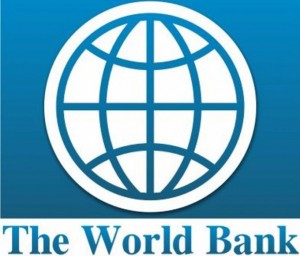World Bank approves $103m for Ghana to work on reversing land degradation
 The World Bank has approved funding to the tune of $103.4 million for Ghana to invest in reversing land degradation.
The World Bank has approved funding to the tune of $103.4 million for Ghana to invest in reversing land degradation.
The Bank in a press release copied to Ghana Business News, said the funding is to also strengthen integrated natural resource management in about three million hectares of degraded landscapes, working with communities of the Northern Savannah Zone and the cocoa forest landscape.
According to the Bank, the cost of environmental degradation in Ghana due to unsustainable use of land for agriculture, forests, and mining stands at 2.8 per cent of national GDP (2017), and it indicates that if the current natural resource extraction remains unchanged, Ghana will see its natural resource base destroyed over the long term, with fewer opportunities to sustain growth and shared prosperity.
Commenting, the World Bank Country Director, Pierre Laporte said; “The project will help boost post-COVID-19 economic recovery, create jobs and secure livelihoods in some of the poorest parts of Ghana by focusing on agricultural productivity, ecosystems management and sustainable small-scale mining.”
“The project aims to place landscapes and mining sector management on a path that would transition from degraded landscapes, poverty, and low productivity toward one of resilient landscapes that optimize the ecosystem functions for better livelihoods and more sustainable economic returns,” said World Bank Practice Manager, Environment, Natural Resources and Blue Economy, Sanjay Srivastava.
The Bank notes further that the project will also enhance women’s role in local-level forest and landscape management activities, and create better income-generating opportunities.
“Over 250,000 people will benefit from the project,” it added.
The World Bank Acting Practice Manager, Energy & Extractives Global Practice, Zubin Bamji, said, “This joint project aligns with the World Bank’s Forest-Smart Mining Initiative and will promote forest-smart interventions in the artisanal and small-scale mining sector and strengthen regulatory compliance and sustainable mining practices.”
The financing includes an IDA credit of $75 million and $28.4 million in grants from the Global Environmental Facility, the Extractive Global Programmatic Support, and the Global Partnership for Sustainable and Resilient Landscapes (PROGREEN) multi-donor Trust Funds, the Bank indicated.
By Emmanuel K. Dogbevi
Copyright ©2021 by NewsBridge Africa
All rights reserved. This article or any portion thereof may not be reproduced or used in any manner whatsoever without the express written permission of the publisher except for the use of brief quotations in reviews.
